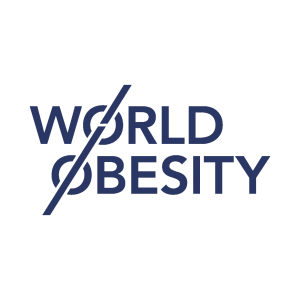Pregnancy & obesity: civil society organisations
“Midwives are concerned about having good ongoing relationships with women… It is not nice to sit with an excited pregnant women and tell her the risks, when she might have been battling with her weight anyways.” - Gail Johnson, Education and Professional Development Adviser at the Royal College of Midwives
“It’s deeply concerning that around half of women are overweight or obese in pregnancy.” “Tackling obesity is complex, but laws to restrict supermarket multi-buy offers on junk food would be an effective measure, helping everyone, including mums-to-be, from filling their shopping trolleys with foods high in fat and sugar.” - Professor Linda Bauld, Cancer Research UK's prevention expert
“We demonstrate increased risks of major malformations also in offspring of mothers with overweight and risks progressively increase with a mother’s overweight and obesity severity.” - Martina Persson, Researcher
"Obese women, overweight women and sedentary women “have a very high incidence of diabetes and high blood pressure in pregnancy. As a result, their offspring are at very high risk for certain congenital malformations that come along with obesity.” - Dr. Raul Artal, Professor and chairman emeritus of the department of obstetrics, gynecology and women's healtgh at Saint Louis University
“But women do want professionals to address it directly and support them in a non-judgmental manner… Most women who are obese are fully aware of it, but sometimes don’t have the means, resources or awareness of what they can do about it.” Nina Khazaezadeh, Consultant midwife
“In high-income countries, roughly 50% of women are already overweight or obese when they become pregnant. This places both the mother and her infant at risk of a range of pregnancy and birth outcomes and can also lead to high infant birth weight, which in turn can lead to childhood obesity.” - Jodie Dodd, Researcher
“There is a clear need for midwives to have the tools, guidance and training they need so they can offer women the best possible support and care. This is especially pressing because of the potentially serious complications that can arise in pregnancy as a result of women being overweight or obese.” - Mandy Forrester, Royal College of Midwives
“Overweight and obesity in pregnancy increases risks of several severe complications in the mother and her child.” - Martina Persson, Researcher
“Getting to a healthy weight has so many benefits, for both mothers and babies, including decreasing risks of diabetes and hypertension for moms, as well as decreasing risks for preterm birth.” - Dr. Siobhan M. Dolan, Medical Adviser to March of Dimes
Royal College of Obstetricians and Gynaecologists
The Royal College of Obstetricians and Gynaecologists works to improve health care for women everywhere, by setting standards for clinical practice, providing doctors with training and lifelong learning, and advocating for women’s health care worldwide.
Policy extract: While the majority of the recommendations within this guideline pertain to women with a BMI ≥30, some recommendations are specific to women in the higher classes of obesity only. Obese women with a BMI below the threshold specified may also benefit from the particular recommendation; however, the chosen BMI cut-offs reflect careful consideration given to the balance of medical intervention versus risk, differences in local prevalence of maternal obesity, and resource implications for local healthcare organisations. Local maternity services may also wish to implement these standards for all women with maternal obesity after consideration of these issues.The recommendations cover interventions prior to conception, during and after pregnancy. See more.
Society of Obstetricians and Gynaecologists of Canada
The Society of Obstetricians and Gynaecologists (SOGC) of Canada is one of Canada’s oldest national specialty organisations. Established in 1944, the Society’s mission is to promote excellence in the practice of obstetrics and gynaecology and to advance the health of women through leadership, advocacy, collaboration, and education. The SOGC has over 4,000 members, comprised of obstetricians, gynaecologists, family physicians, nurses, midwives, and allied health professionals working in the field of sexual reproductive health. As of January 1, 2018, the Association of Academic Professionals in Obstetrics and Gynaecology (APOG) was officially integrated with the SOGC, strengthening and unifying the voices of both organisations in their common goal to improve women’s health in Canada through research and education.
Policy extract: The objective is to review the evidence and provide recommendations for the counselling and management of obese parturient. See more.
The British Nutrition Foundation (BNF) is a registered charity with a broad funding base comprising both commercial and non-commercial sources. Our core purpose is to make nutrition science accessible to all and we do this through the interpretation, translation and communication of often complex scientific information.
Policy extract: This briefing paper will outline the physiological changes that take place during pregnancy and the influence of maternal diet and nutritional status on fetal outcome. The current UK dietary recommendations for women both prior to and during pregnancy will be discussed in detail, together with their evidence basis. Food safety issues are also covered, as well as diet-related conditions during pregnancy, such as anaemia and gestational diabetes. Issues relating to specific groups, including vegetarians and teenagers, are discussed in the final section. See more.
The Current Understanding of Gestational Weight Gain Among Women with Obesity and the Need for Future Research
The position paper published by the National Academy of Medicine in 2020 calls for more research to increase improve interventions and support for pregnant women living with obesity and their child throughout/after the gestational period. It advocates for interventions that engage and involve communities throughout the development process.
Read more here.
BfN Position statement on APPG on Obesity report May 2018
‘The Breastfeeding Network would like to see the Government go further in taking action to implement the recommendations of the Obesity APPG AND include evidence and support for breastfeeding which will go a long way to support better health outcomes for women and children regardless of their backgrounds.’
This was one of the comments of the Breast-Feeding Network in the UK in response to the launch of All Parliamentary Group on Obesity’s report in May 2018.


